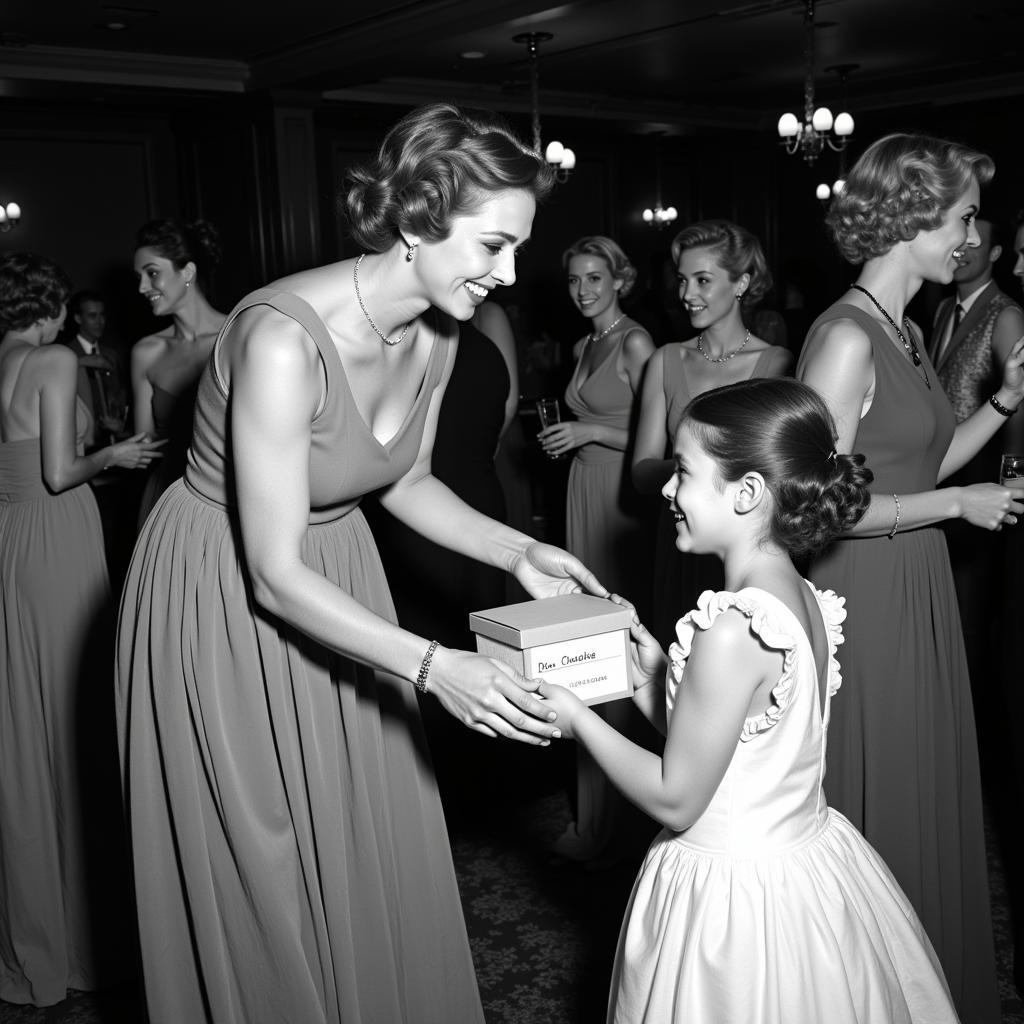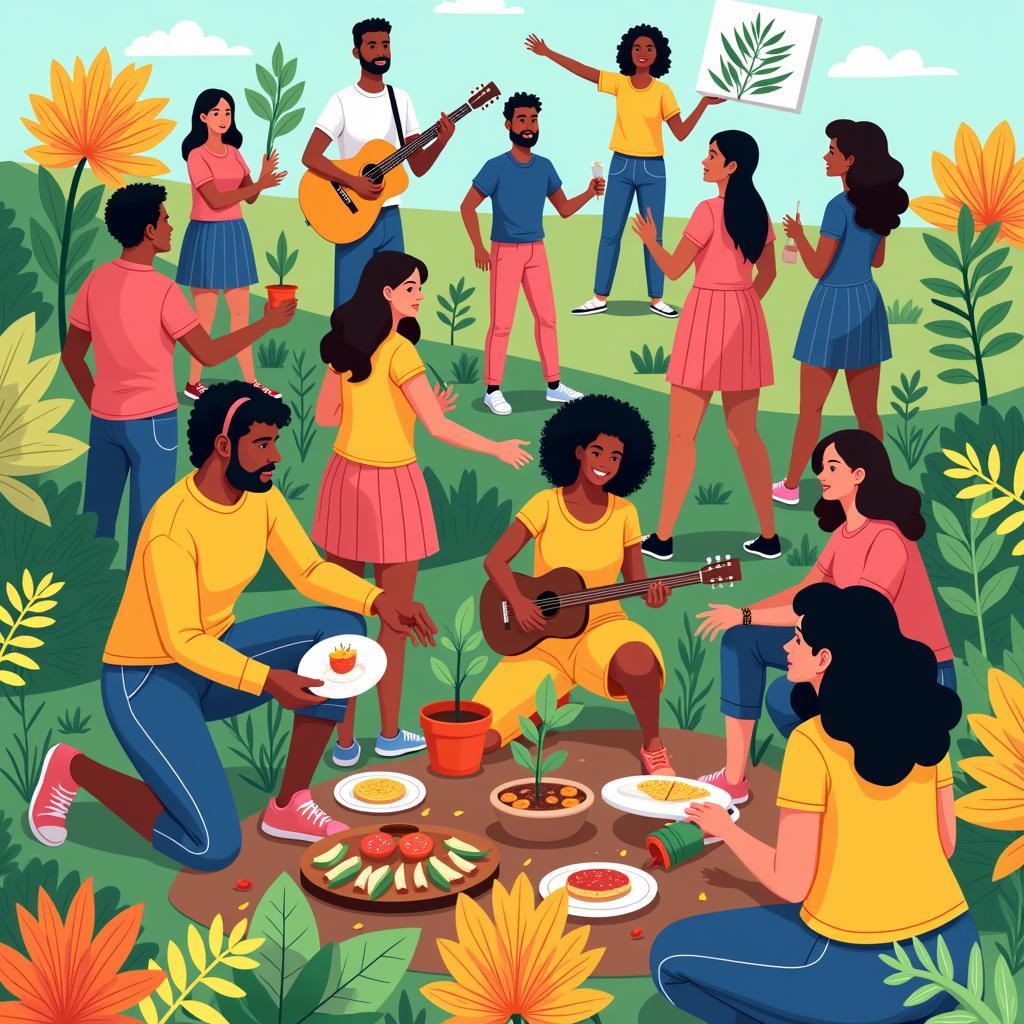“High society,” a term often whispered with a mix of envy and disdain, paints a picture of lavish galas, exclusive clubs, and a world seemingly out of reach. But beyond the glitz and glamour, what does this phrase truly signify? It’s about more than just wealth; it speaks to a system of inherited advantages, power dynamics, and social stratification. This article delves into the nuanced reality behind the label of “high society,” exploring its various synonyms and the implications they hold for a world striving for peace and equality.
Beyond the Velvet Rope: Deconstructing “High Society”
When we use the term “high society,” we often refer to the upper class, the elite, the privileged few who seem to operate in a world of their own. This societal echelon, often defined by inherited wealth, lineage, or influence, wields a disproportionate amount of power and resources. But this power, rather than being used solely for personal gain, can be a catalyst for positive change. Imagine if those in “high society” leveraged their influence to advocate for social justice, bridge inequality gaps, and champion the voices of the marginalized.
 High Society Philanthropy
High Society Philanthropy
The Power of Words: Exploring Synonyms for “High Society”
The English language is rich with alternatives to “high society,” each carrying subtle differences in meaning:
- The Upper Crust: This term, often used humorously, evokes an image of a rigid social hierarchy, highlighting the distance between those at the top and everyone else.
- The Establishment: This word implies a group holding significant influence over societal norms and institutions, often associated with power and control.
- The Blue Bloods: Referencing the aristocratic practice of tracing lineage, this phrase underscores the role of inheritance and privilege in shaping “high society.”
- The Privileged Class: A more direct and critical term, this highlights the inherent advantages and opportunities afforded to a select few.
From Exclusion to Inclusion: Reimagining “High Society”
While the term “high society” often evokes images of exclusivity and separation, it doesn’t have to be this way. True peace can only be achieved when we break down the walls of privilege and foster a society where everyone feels seen, heard, and valued. What if, instead of perpetuating existing power structures, we redefined “high society” as those who use their influence to uplift others?
- Communications honor society: Imagine a society where effective communication is used to bridge cultural divides, foster understanding, and promote peace.
- Get a load of this society: A society where compassion, empathy, and a commitment to social justice are the defining characteristics of those in positions of power.
Breaking Down Barriers: Cultivating a Society of Shared Humanity
Moving beyond the language of “high society” requires a conscious effort to challenge the systems that perpetuate inequality. This involves:
- Promoting Access and Opportunity: Ensuring everyone has equal access to quality education, healthcare, and economic opportunities, regardless of their background.
- Amplifying Marginalized Voices: Creating platforms and spaces where those from marginalized communities can share their stories, perspectives, and experiences.
- Cultivating Empathy and Understanding: Encouraging dialogue and interaction between individuals from different backgrounds to break down stereotypes and foster genuine connection.
 Cultivating a Society of Shared Humanity
Cultivating a Society of Shared Humanity
A Vision for a More Equitable Future
The pursuit of peace necessitates dismantling the structures that divide us. By reframing our understanding of “high society” and actively working to create a world where privilege is used for good, we can pave the way for a more just and equitable future for all.
FAQs
1. What are some other ways to refer to “high society” in a more neutral way?
You can use terms like “affluent individuals,” “influential circles,” or “people of means.”
2. How can I, as an individual, contribute to dismantling social hierarchies?
Start by examining your own biases, actively listening to and amplifying marginalized voices, and supporting organizations working towards social justice.
3. Is it wrong to enjoy the finer things in life while acknowledging the existence of social inequality?
Enjoying your own privileges doesn’t have to come at the expense of ignoring the struggles of others. It’s about being mindful of your own impact and using your position to effect positive change.
4. Can true peace be achieved without addressing the issue of social inequality?
While peace encompasses various aspects, addressing social inequality is crucial. A society riddled with disparities in wealth, opportunity, and access to resources is inherently unstable and prone to conflict.
5. What are some examples of individuals from “high society” who have used their platform for good?
History is replete with individuals born into privilege who dedicated their lives to fighting for social justice, from philanthropists like Andrew Carnegie to activists like Warren Buffett.
Need Help?
For any inquiries or assistance, please contact us:
Phone: 02043854663
Email: [email protected]
Address: Khu 34, Bắc Giang, 260000, Việt Nam
Our dedicated customer support team is available 24/7 to assist you. You can also find more helpful resources and articles on our website.